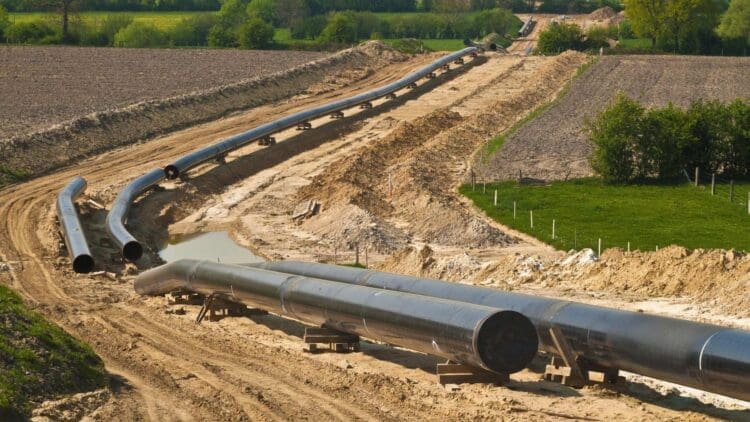In a world dominated by self-serving interests, developing bilateral agreements between nations is essential to advancing the energy sector, as most projects require input from several countries to be a success. In that bilateral trend, Nigeria and Equatorial Guinea have inked a deal to accelerate a cross-border gas pipeline that will reshape the region’s monetization of the gas sector. West Africa has long been overshadowed by more prominent nations like South Africa and Namibia, but through the new deal signed by both Presidents, Nigeria and Equatorial Guinea can foster a new future for the African energy market.
A new era of bilateral cooperation is upon the African energy sector
Nigeria and Equatorial Guinea have made some serious inroads in tackling West Africa’s energy problems by signing a deal that promises to reshape the African energy market. The new deal allows for gas to be transported and then processed at Equatorial Guinea’s LNG processing facilities at Punta Europa on Bioko Island.
The state-owned EG LNG will operate the Punta Europa facility that enables Africa to take hold of its energy future through bilateral operations. The deal was signed last week by Presidents Teodoro Obiang Nguema Mbasogo and Bola Ahmed Tinubu, and marks a significant milestone in cross-border energy projects that could set the West African region up to become a cornerstone of the gas sector.
“This agreement marks a significant milestone in Equatorial Guinea’s GMH initiative, reinforcing our position as a regional leader in gas monetization. By partnering with Nigeria on the Gulf of Guinea Gas Pipeline, we are not only strengthening bilateral cooperation but also regional collaboration to ensure a secure and reliable supply of gas for our LNG facility at Punta Europa for years to come.” – Antonio Oburu Ondo, Minister of Mines and Hydrocarbons of Equatorial Guinea
Several exceedingly large international energy companies have jumped on board the African energy bandwagon
Huge international energy companies have not taken the news of the expanding African energy sector lightly. The new deal, inked into reality by both governments, has come off the back of several milestones achieved aimed at unlocking Africa’s energy potential as the region is set to become a vital cog in the international gas sector.
“This project will unlock immense economic value for both our nations, driving sustainable development and energy security across the region.” – Antonio Oburu Ondo, Minister of Mines and Hydrocarbons of Equatorial Guinea
Equatorial Guinea’s GMH at Punta Europa was commissioned in 2007, with the aim of monetizing gas resources in both domestic and regional fields across the nation. Marathon Oil Corp and Chevron, both hugely successful energy companies, signed an agreement in 2023 with Equatorial Guinea to advance the progress of the sector.
The trend emerging in Africa has been echoed across the world, with Woodside outlining plans to increase LNG output by 2032. The global energy sector has seen some serious growth in the last few years, with the bilateral agreement between the two African nations serving as a blueprint for future deals on the continent.
Cross-border projects develop relations and serve as drivers for growth
Growth in the energy sector is not accomplished easily; it requires pragmatic thinking and substantial investments. Through the bilateral agreement signed between Nigeria and Equatorial Guinea, Africa is securing its long-term future for the energy sector. Other regions of the world have also seen several cross-country projects being developed or commissioned as of late, with Gazprom and Kazakhstan developing their own cross-border pipeline. Nigeria’s expertise in the energy sector will serve the project well, and for Equatorial Guinea, the future of its energy sector has opened new doors for bilateral cooperation.






